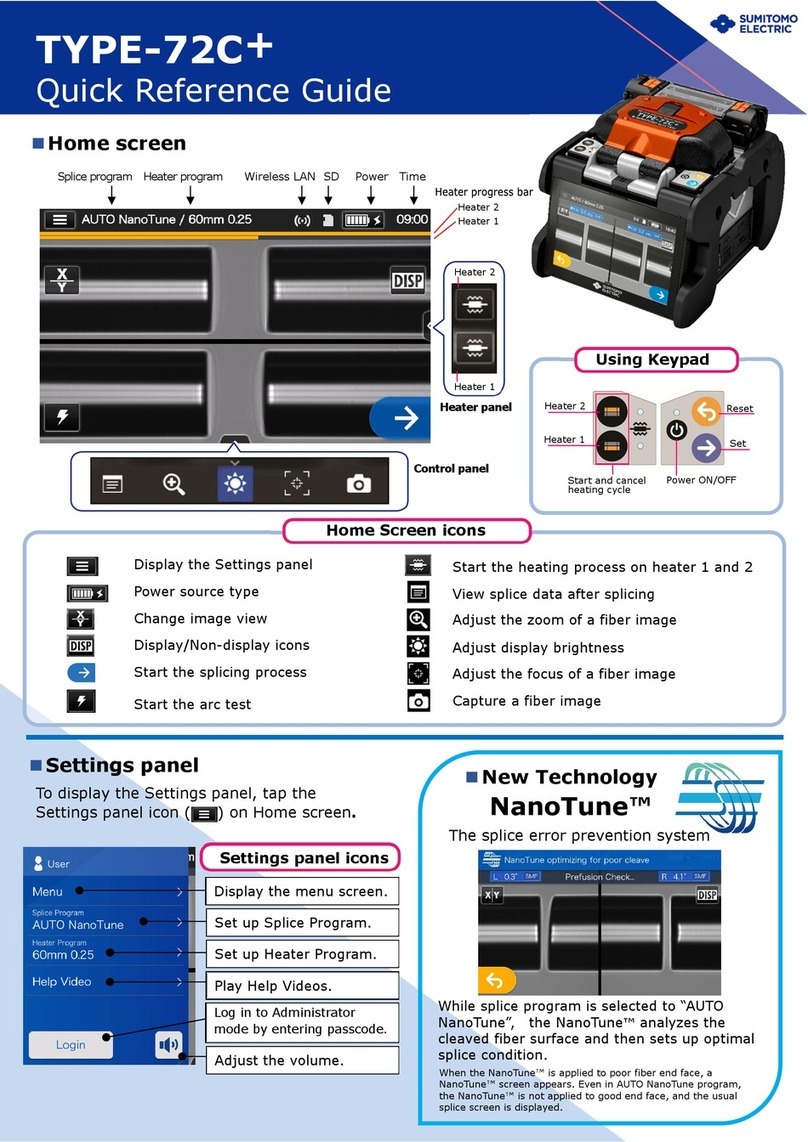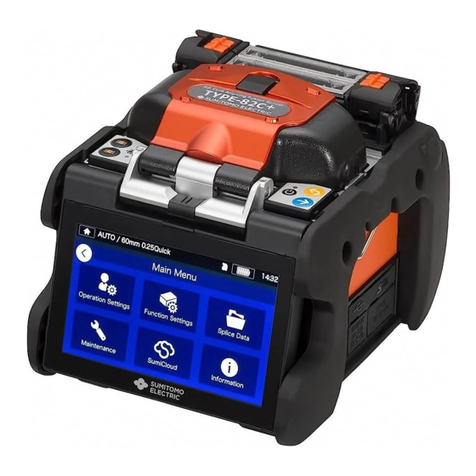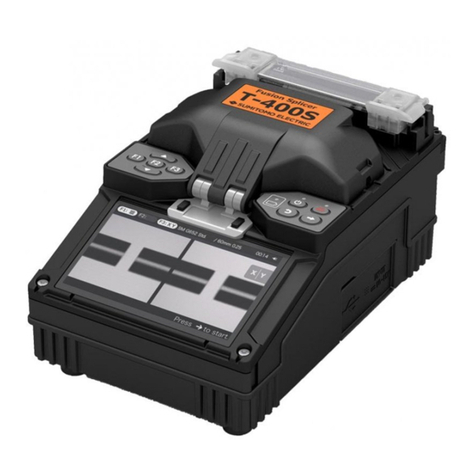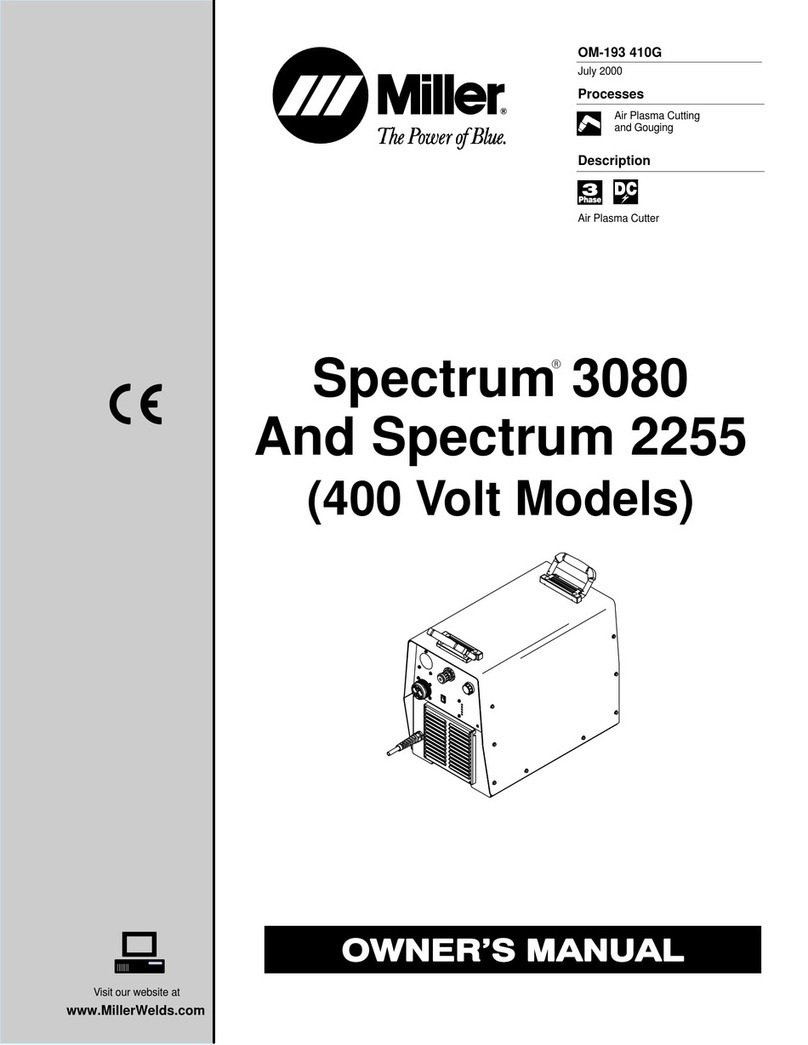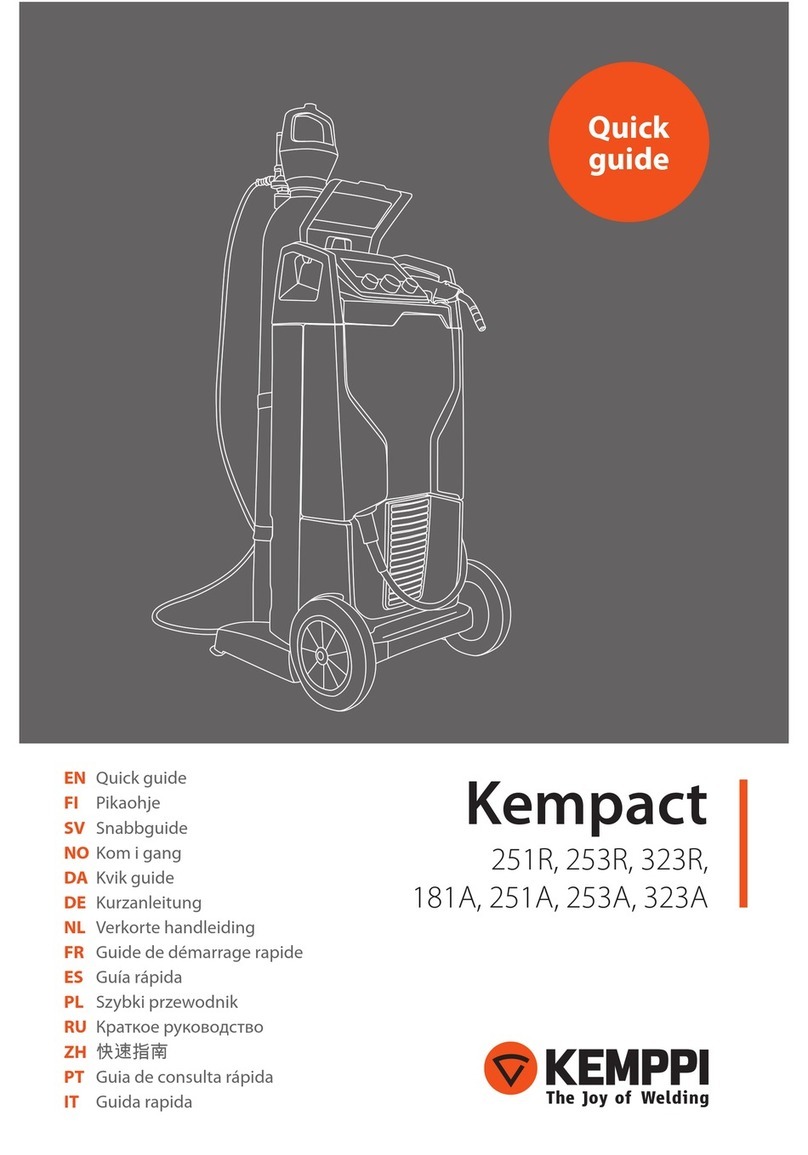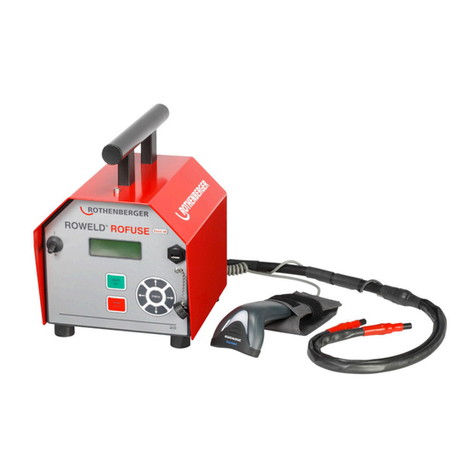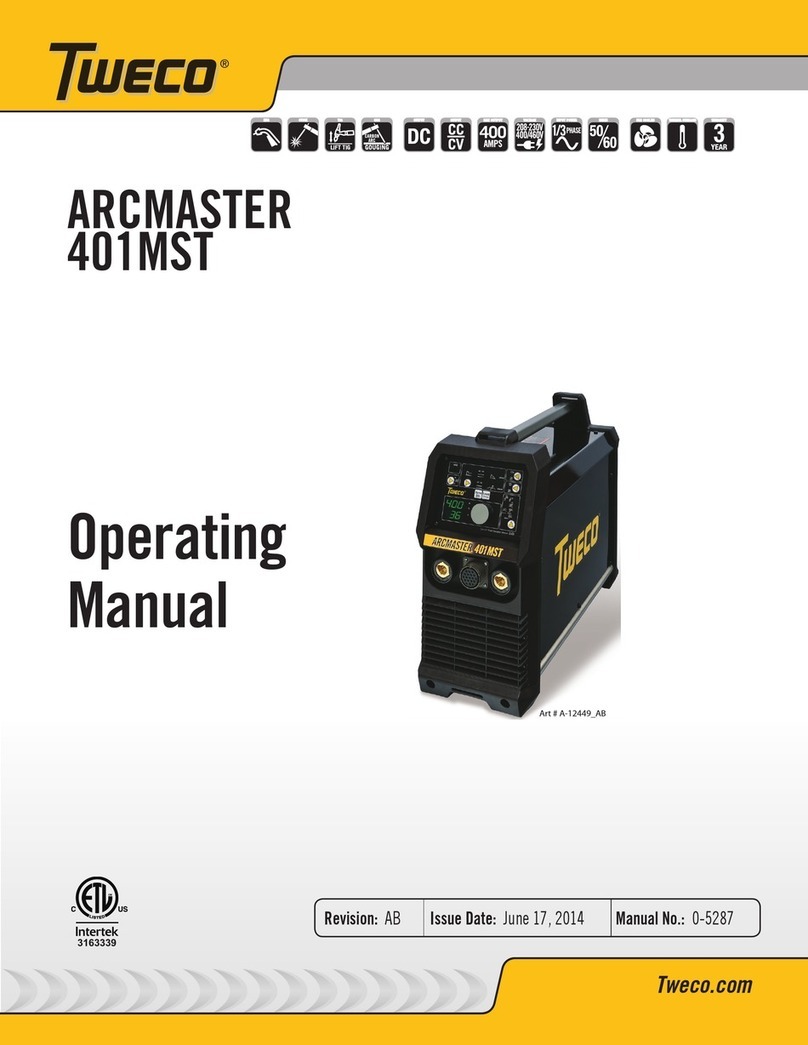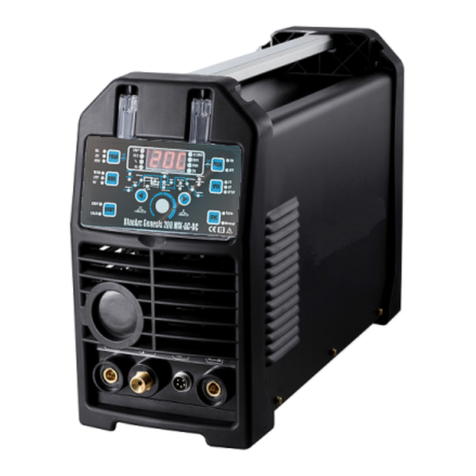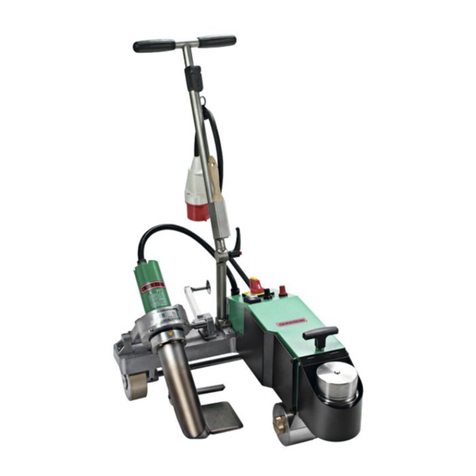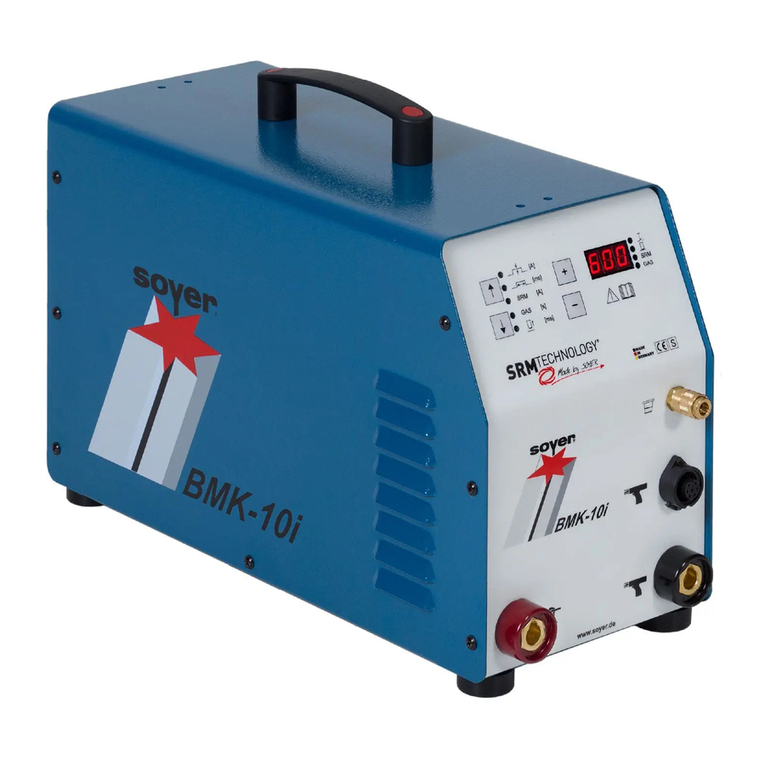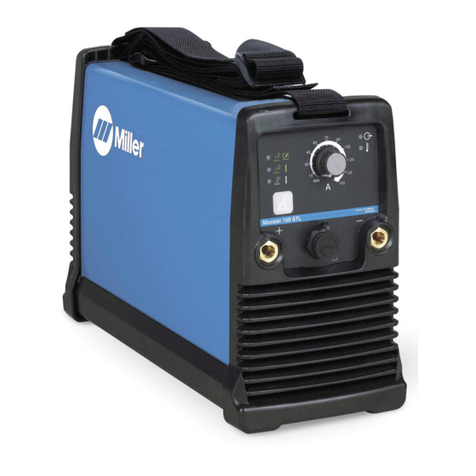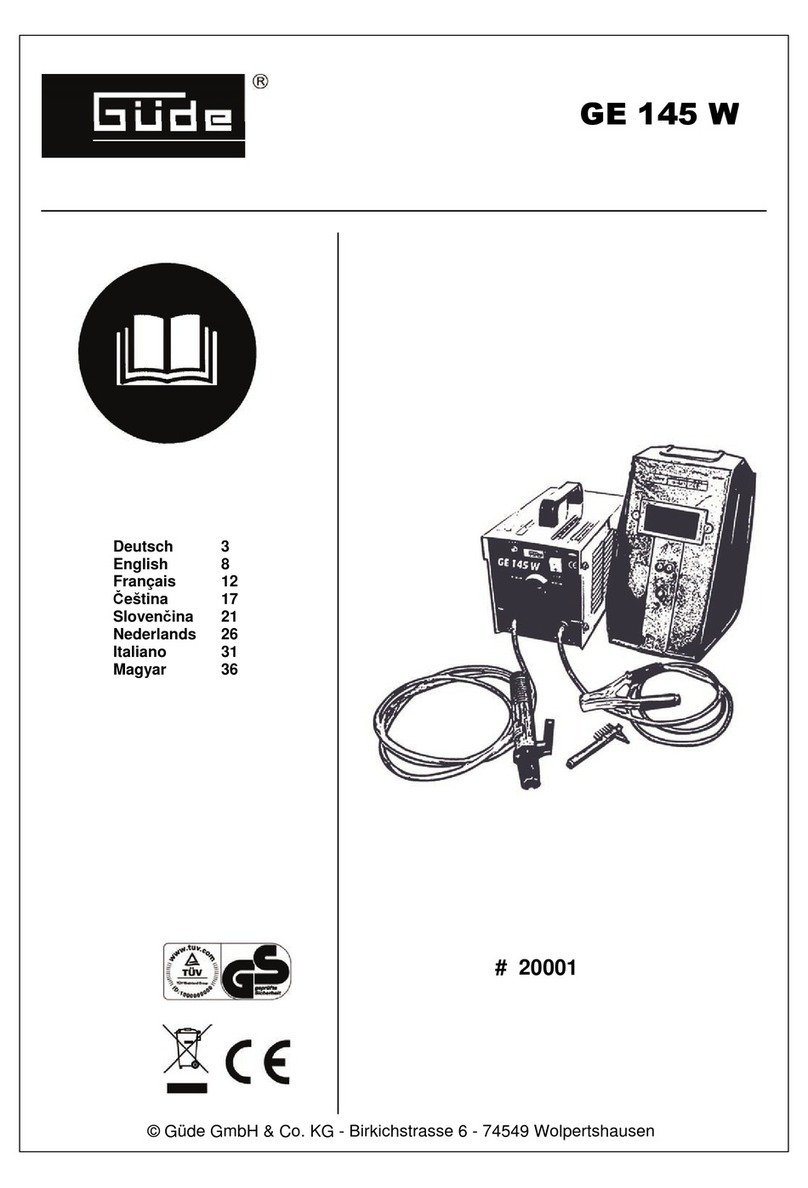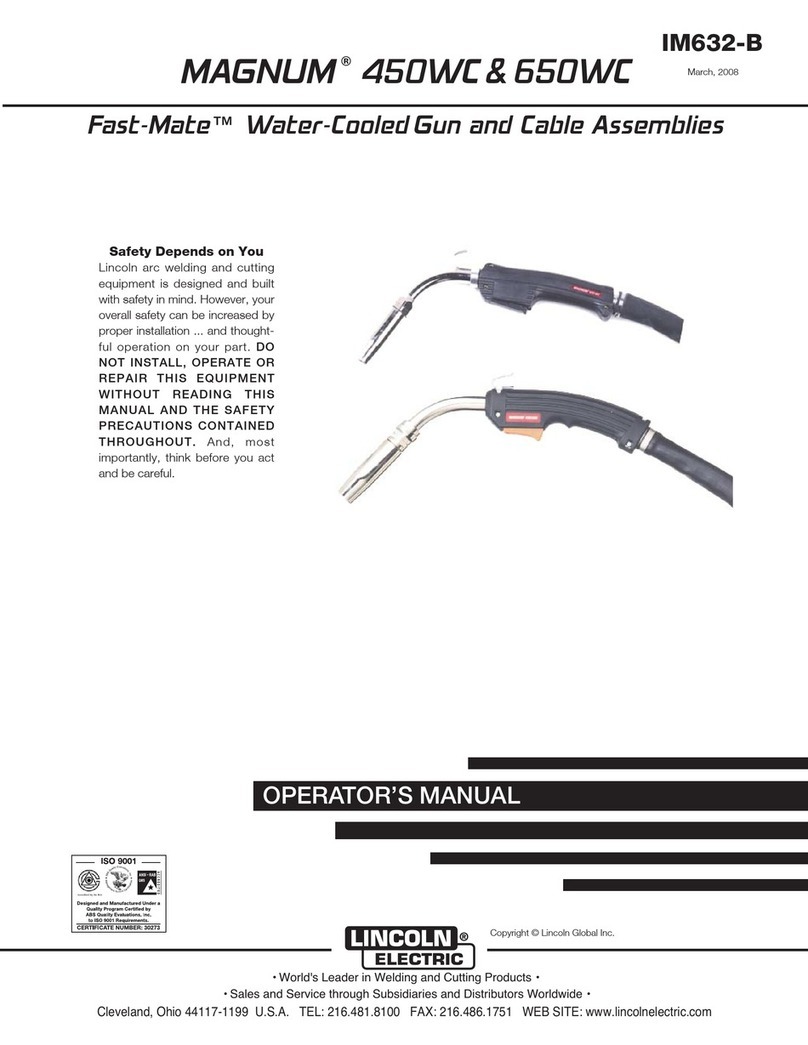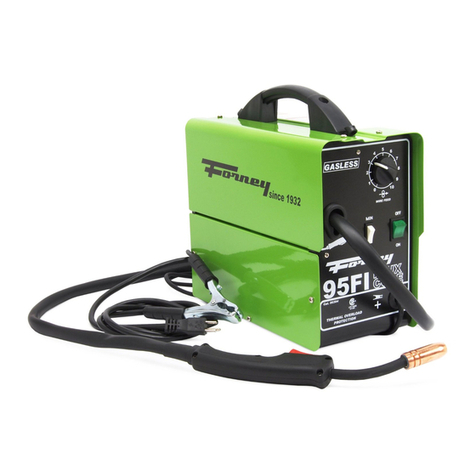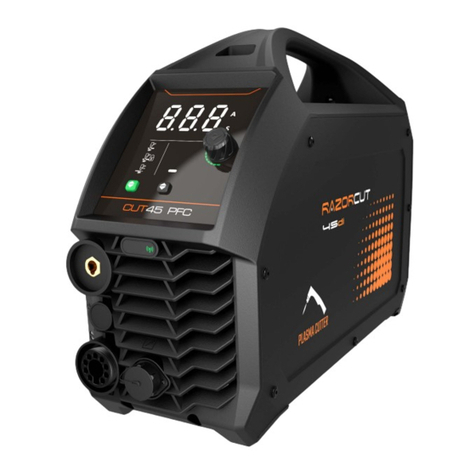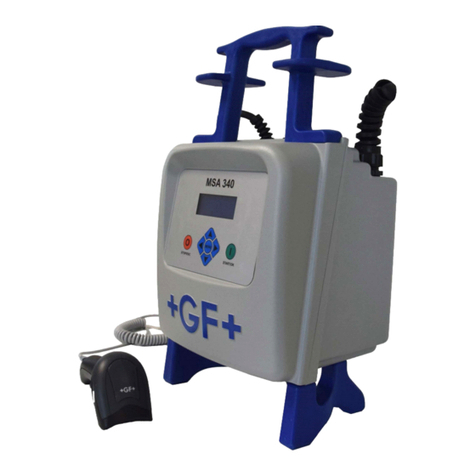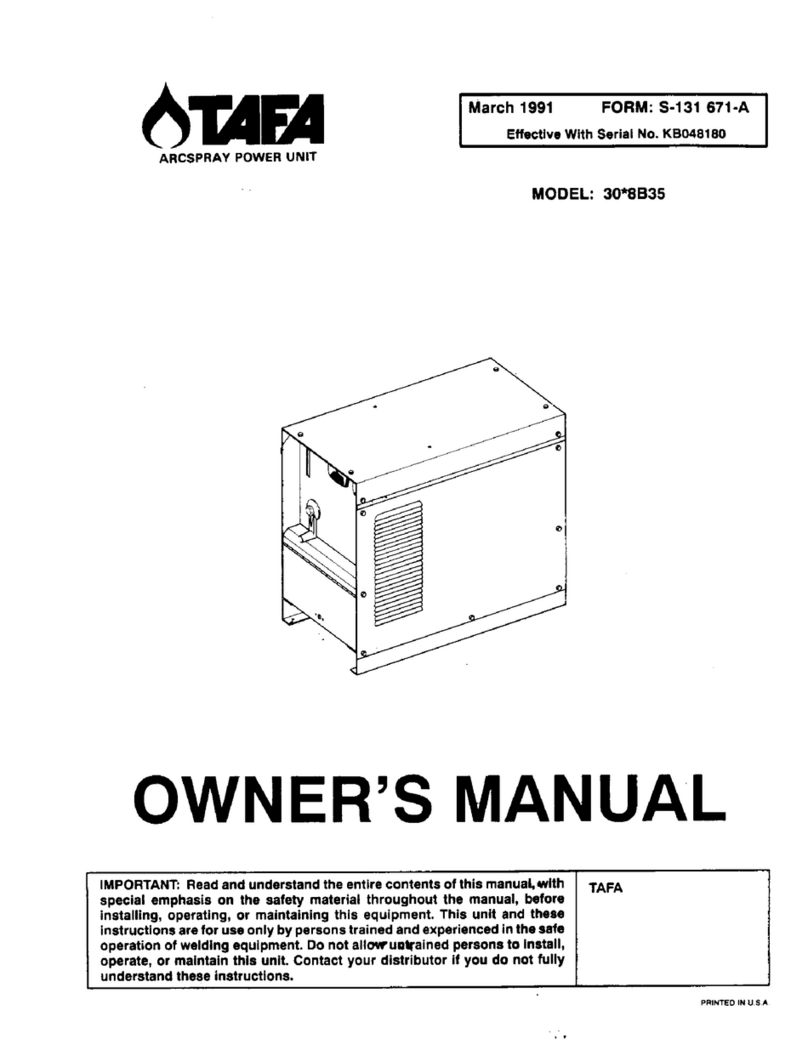Sumitomo TYPE-71c User manual

OME1124015
Direct Core Monitoring Optical Fiber Fusion Splicer
TYPE-71C
Guide to operation

This product has been designed and manufactured to assure personal
safety. Improper use can result in fire, electric shock or injury to persons.
Please read and observe all warnings instructions given in this operation
manual.
Use your splicer only for its intended purpose.
The meaning of these symbols
In the product and this operation manual, symbols are used to highlight warnings and cautions for
you to read so that accidents can be prevented. The meanings of these symbols are as follows:
Symbol used in the product
This symbol, where it appears on the unit, indicates that hazardous voltage
is present inside of the splicer.
The meaning of these symbols
This symbol indicates a warning, caution, or danger and alerts you important
instructions have been included on the product or in the manual.
This symbol indicates actions that are prohibited.
This symbol indicates actions that must be taken.
The meaning of Warning and Caution
This symbol indicates explanations about extremely dangerous matters. If
users ignore this symbol and handle the splicer the wrong way, serious injury
such as fire or electric shock, or death could result.
This symbol indicates explanations about dangerous matters. If users ignore
this symbol and handle the splicer the wrong way, bodily injury and damage
to the equipment could result.
Caution
Warning
Be sure to read all the following warnings and cautions before use.
[Warning]
<Setting up and using splicer>
1. This fusion splicer performs an arc discharge. Do not use the splicer in a hazardous
location in which inflammable gas can generate or only electrical apparatus for
explosive gas atmosphere can be used.
2. Never use spray cleaners such as Freon or Flammable gas on the splicer.
Decomposition of arc by heat will cause toxic gas, or abnormal arc may result in
damage or fire.

3. Do not use and store the splicer out of the locations defined in a brochure and this
manual. Doing so can cause splicer malfunction or deterioration, resulting in fire or
electric shock.
4. To reduce the risk of fire, electric shock or malfunction, do not allow the splicer to be
exposed to rain and get liquid such as water or a metallic object inside the splicer.
Doing so can cause fire, electric shock or malfunction by shorting out internal
components.
5. Never use the battery pack, AC adapter and battery charger, and power cables for
the machines other than the specified splicer. Doing so can cause these items to
damage, resulting in fire or heat generation.
6. Do not make mechanical or electrical modifications to the splicer since this may
expose you to dangerous voltage or other hazards.
7. Do not touch the electrodes during and after arc discharge. Doing so can cause
personal injury or electric shock.
8. The heating plate of the heat shrink oven may be hot during heating. Do not touch
the protection sleeve directly after heating. Doing so can cause burn. A protection
sleeve may also be hot after heating. Handle with care.
9. Do not operate the splicer in the rain. Doing so can cause AC adapter or battery pack
to be short-circuited.
10. Do not expose the splicer to extremely high temperature and high humidity or to
direct sunlight for prolonged periods.
11. Do not continuously use the heat shrink oven for long hours, keeping it high
temperature. Doing so can cause heat shrink oven to malfunction.
The following case is the exception for repairing and replacing the product free of
charge:
The Heating duration is set to a long time (e.g. 180 sec.) and the Finish temperature
is set to a high temperature (e.g. 200 °C). The heat shrink oven is used for long hours
by continuing to press the Heat key shortly after the heat cycle is completed.
12. Only use alcohol to clean the splicer. To prevent malfunction and damage, do not use
any other kind of chemicals.
13. Never use spray cleaners such as Freon or flammable gas on the splicer. Heat by arc
can cause chemical reactions to occur to gas component, which will deteriorate a
microscope lens, resulting in a loss of splicing capability.
14. Parts that compose the heat shrink ovens might become high temperatures. When
those parts are damaged, do not use it and contact our service center.
15. Because it is likely to injure by shards of glass when the monitor is damaged, do not
use it and contact our service center.
16. When parts that compose this product and the accessory (battery pack, AC adapter,
and power cord, etc.) are damaged, do not use it and contact our service center.
17. Do not use this product near the electronic equipment that handles a highly accurate
control and the faint signal such as the heart pacer. The influence of the
miss-operation of electronic equipment might be given.

18. Avoid places with too much dust or dirt. Dirt or dust that can accumulate in the fusion
splicer causes short circuit and insufficient cooling, which may lead to splicer
malfunction or deterioration, resulting in fire or electric shock.
19. Only use the battery pack, AC adapter, battery charger and power supply cord for the
splicer as defined in this manual. Failure to do so can cause these items or the fusion
splicer to damage, resulting in fire or electric shock.
20. Only use a voltage within the indicated power voltage. Failure to do so can cause fire
or electric shock.
21. Check for condensation before operation. If necessary, dry the splicer with a hair
dryer. If water or other liquid, a metallic object or other foreign substance gets inside
the splicer, immediately turn off the power and disconnect the power plug. Contact
our qualified service personnel.
22. In a high location, take safety measures to prevent fall of operators. Dropping the
splicer could result in personal injury. Fix the splicer to a worktable or a tripod with the
screw on the bottom of the splicer.
23. If an abnormal condition such as unusual noise, smoke or unusual odor occurs,
immediately turn off the power and disconnect the power plug. Next, contact our
qualified service personnel.
24. Be sure to turn off the splicer and unplug the power cord or remove the battery pack
before replacing the electrodes.
25. Only use Sumitomo genuine electrodes (ER-10). And use the splicer with electrodes
installed in it. Failure to do so can cause the splicer to damage, resulting in fire,
electric shock or malfunction.
1. To reduce the risk of electric shock, do not plug/unplug the power cord or remove the
battery pack with wet hands.
2. Disconnect the power cord by grasping the plug, not the cord. Failure to do so can
cause damage to the power cord, resulting in fire, electric shock or malfunction.
3. Before charging the battery pack, make sure that the pins of the battery charge cord
are not bent or broken. Using the battery charge cord with a bent or broken pin can
cause internal short circuit, resulting in fire or electric shock.
<Handling of power cord and plug >

<Handling of battery pack>
1. Do not burn the battery pack or throw it into a fire. Doing so can cause heat
generation, bursting and fire.
2. Do not place the battery pack in microwave ovens and high-pressure containers.
3. Do not let water or sea water wet or soak the battery pack. Safety and protective
devices to prevent danger are built in the battery pack. If these devices are damaged,
excessive current flow can cause abnormal chemical reaction in battery fluid, heat
generation, bursting and fire.
4. Do not throw or impact the battery pack. Safety and protective devices to prevent
danger are built in the battery pack. If these devices are damaged, excessive current
flow can cause abnormal chemical reaction in battery fluid, heat generation, bursting
and fire.
5. Do not pierce the battery pack with nails, strike the battery pack with a hammer, or
step on the battery pack. Doing so can cause internal short circuit, heat generation,
bursting and fire.
6. Do not disassemble or modify the battery pack. Safety and protective devices to
prevent danger are built in the battery pack. If these devices are damaged, excessive
current flow can cause loss of control during charging or discharging of the battery
pack, heat generation, bursting and fire.
7. Make sure the polarities are correctly connected. Do not attempt to connect the
battery pack or other equipment when you cannot do. Reversed connections can
cause abnormal chemical reaction in battery fluid, heat generation, bursting and fire.
8. Do not solder any lead wires directly to the battery pack. Do not directly connect the
positive and negative terminals with a conductive material such as a wire. Do not
carry or store the battery pack together with any personal jewelry, hairpins or other
Metallic objects. Doing so can cause an electrical short circuit. Also excessive current
flow can cause abnormal chemical reaction in battery, heat generation, bursting and
fire.
9. Only use a specified battery charger. Failure to do so can cause the battery to be
overcharged or excessive current flow can cause abnormal chemical reaction in
battery fluid, heat generation, bursting and fire.
10. Use the battery pack only for the application for which it was designed. Failure to do
so will result in a loss of performance and a shortened life expectancy. Also excessive
current flow can cause loss of control during charging or discharging of the battery
pack heat generation, bursting and fire.

[Caution]
<Transportation and storage>
1. This product is a precision instrument. When transporting the splicer, use its specified
carrying case to protect the splicer from excessive shock or impact.
2. Do not use and store the splicer out of the locations defined in a brochure and this
manual. Failure to do so can cause splicer malfunction or deterioration, resulting in
fire or electric shock.
3. Do not store any items other than the product, package contents and optional
accessories in the carrying case. Overloading the case can cause damage to the
body of the carrying case, case handle, strap and latch.
4. Do not throw or fall the carrying case. Doing so can cause damage to the body of the
carrying case, case handle, strap and latch.
5. Do not use a carrying case where there is a visible sign of damage and screw
looseness.
6. Do not store the hand strap in the windshield. It causes damage to the machine.
7. Do not carry the machine grabbing the hood or the monitor.
8. Do not brandish the machine with the hand strap, and brandish neither AC adapter
nor the power cord. There are fear of machine damage and the injury.
9. Do not use the machine with the lid of the battery Pack slot opened.
10. Before carrying the case, make sure that there is no visible sign of damage and
screw looseness on the handle and latch. If the case with damage and screw
looseness is carried, it could drop down, causing personal injury or splicer
malfunction.
11. Before picking up the case, ensure that the latch is completely locked. Carrying the
case with the latch unlocked can cause the case to fall open and result in personal
injury or splicer malfunction due to heavy impact.
12. Be careful that your fingers not to be caught in the hinge part and the lid when you
open and shut the case.
13. Confirm the work table of the carrying case is surely fixed to the case when you
carry it.
14. Do not modify the handle, strap or strap attachment points. Only use the carrying
strap supplied by us.
15. Avoid places with too much dust or dirt. Dirt or dust that can accumulate in the
fusion splicer causes short circuit and insufficient cooling, which may lead to splicer
malfunction or deterioration, resulting in fire or electric shock.
16. If you are not going to use the splicer for a prolonged period, remove the battery
pack from the splicer. Failure to do so will shorten a battery life.
17. Unplug the fusion splicer or remove the battery pack before attempting any
maintenance or if not using the splicer for a prolonged period. Failure to do so can
cause fire.
18. The monitor, the hood, and the heater clamping, etc. do the opening and shutting
operation. Be careful of your fingers not to be caught.

<Handling of optical fiber >
1. Never look into optical fibers or the end of an optical cable attached to the optical
output when the device is active. The laser radiation can seriously damage your
eyesight.
2. Wear safety glasses at all times for protection from glass fibers.
< Others >
1. Make sure the polarities are correctly connected. Do not attempt to connect the
battery pack or other equipment when you cannot do. Reversed connections can
cause abnormal chemical reaction in battery fluid, heat generation, bursting and fire.
2. Do not carry or store the battery pack together with any personal jewelry, hairpins or
other Metallic objects. Doing so can cause an electrical short circuit. Also excessive
current flow can cause abnormal chemical reaction in battery fluid, heat generation,
bursting and fire.
3. Do not use a dry cell battery and the batteries differing in capacity, type, and
manufacturer. Doing so can cause heat generation, bursting and fire.
4. The battery's optimum charging temperature range is 0 to 40˚C. Under high
temperature conditions such as in direct sunlight or near a fire, safety and protective
devices to prevent danger which are built in the battery pack will be activated,
resulting in failure of charging. Or if these devices are damaged, excessive current
flow can cause loss of control during charging or discharging of the battery pack, heat
generation, bursting and fire. Avoid charging the battery pack at extremely low
temperature (below 0˚C). Failure to do so may lead to deterioration in performance
and battery leakage.
5. Always turn off the power to the splicer after use. Failure to do so can cause the
battery to be over discharged and deteriorated in performance.
6. In the event the battery pack leaks and the fluid gets into one's eyes, do not rub the
eyes. Immediately wash them thoroughly with clean water enough from the tap and
consult a doctor urgently.
7. Unplug the fusion splicer or remove the battery pack before attempting any
maintenance or if not using the splicer for a prolonged period. Failure to do so can
cause fire.
8. Pay attention not to drop the battery pack when installing and removing it. Dropping
the battery pack can cause personal injury.
1. Do not press the keys on the keypad with a sharp object ( e.g. a ballpoint pen,
screwdriver, or nail ) Doing so will damage the keypad.
2. Do not press strongly the touch screen with a sharp object.
3. Do not use or store the battery pack at high temperature, such as in strong direct
sunlight, and in cars during hot weather. This can cause deterioration of the battery.
4. Even if you are not going to use the battery pack for a prolonged period, charge it
once a year.
5. Do not press the liquid crystal display with force or the display may fail.
6. Take care to keep spliced fiber straight. Do not flex it back and forth. Doing so can
cause the spliced fiber to be broken, resulting in loss of the long term reliability of the
fiber.
7. Do not use a canned air for cleaning. Chemical reaction may deteriorate the lens,
resulting in a loss of splicing capability.
<Battery handling and charging>

8. Check the voltage of AC power before use. The AC adapter should be grounded to
earth. If voltage or frequency beyond the range stated flows in the AC adapter, a
safety and protective device to prevent danger is activated and the AC adapter will
stop. In that case, a new AC adapter should be purchased. Please contact our
qualified service personnel.
9. Charge the battery pack within the following temperature range. Failure to do so may
lead to deterioration in performance.
*Battery pack’s required temperature range: 0°C ~ +40°C
10. Before using the battery pack for the first time, charge it.
11. The battery pack is consumables. Repeated charging and discharging decreases
battery life.
12. Store the battery pack within the following temperature range. Failure to do so may
lead to deterioration in performance.
*Battery pack storage temperature range: -20°C ~ +50°C (if stored for less than 1
months) -20°C ~ +40°C (if stored for less than 3 months) -20°C ~ +20°C (if stored for
less than 1 year)
13. Charge the battery pack fully before storing it for a prolonged period.
14. Even if you are not going to use the battery pack for a prolonged period, charge it
once a year.
15. If you are getting fewer than splice cycles per fully charged battery, consider
replacing the battery pack by a new one.
16. When disposing of the battery pack, contact our qualified service personnel or follow
the local regulations.
17. Although bright spots or dark spots may appear on the screen, this is a unique
characteristic of liquid crystal displays, and such do not constitute or imply a machine
defect.
18. We recommend your splicer to be annually over-hauled to keep it in good condition.
19. Glass fiber fragments are extremely sharp. Handle with care.
20. Turn off the splicer before maintenance work. Failure to do so can cause electric
shock.
21. Be sure to remove moisture, alcohol or dust on the heater element with a dry cotton
swab.
22. Only use Sumitomo genuine electrodes (ER-10). Failure to do so can cause the
splicer to malfunction.
23. Do not clean the electrode. Doing so can cause unstable arcing performance.
24. Storing and transporting the splicer with the battery pack installed can cause the
battery pack to be damaged or deteriorated, resulting in fire. Remove the battery
pack from the splicer before storage.
25. Transporting the splicer with fiber holders loaded can cause the V-grooves or clamps
to be damaged, resulting in the failure of splice. Remove the fiber holders from the
splicer before storage.
26. Ensure that the strap should be completely secured.
27. Whenever you use the strap rings, be sure to hold the splicer with your hand. Failure
to do so can cause the splicer to turn over and accessories such as fiber holder will
drop.

The European Union has enacted a Directive 2002/96/EC on Waste
Electrical and Electronic Equipment (WEEE Directive). This directive is
applicable in the European Union member states. The crossed out
wheelie bin symbol found on our products indicates that it should not be
disposed of together with household waste.
To prevent possible harm to human health and the environment, waste
electrical equipment must be disposed of in an approved and
environmentally safe recycling process.
For further information on how to dispose of the product correctly, please
contact the product supplier, or the local authority responsible for waste
disposal in your area.
WEEE Directive (Waste Electrical and Electronic Equipment; 2002/96/EC)
RoHS Directive (2011/65/EU)
The TYPE-71C optical fusion splicer is RoHS-compliant.
IMPORTANT: REGION LIMITATION
WARNING:
This product is sold for the use in a limited sales area and the sale, resale, transfer,
lease or otherwise of this product to the other regions is prohibited, except written
consent of Sumitomo Electric Industries, LTD.
YOU NEED TO AGREE ABOUT A SOFTWARE LICENCE AND REGION LIMITATION
BEFORE USE.
Reference of Sales Area and Sumitomo Sales & Service Representatives:
Sales Area Sumitomo Sales and Service Representatives
North & South America SEL . Sumitomo Electric Lightwave Corp.
Europe, Middle east, Africa
(EMEA)
UK
SEEL SEEL : Sumitomo Electric Europe Ltd.
China SEA Sumitomo Electric Asia, Ltd.
SEAC Sumiden Asia(Shenzhen) Co., Ltd.
Thai, Vietnam SET Sumitomo Electric(Thailand) Limited
Indonesia, Singapore SEPS Sumitomo Electric Interconnect
Products (Singapore) Pte Ltd.
India, South Asia SETI SEI Trading India Pvt. Ltd.
Philippines SEPI SEI (philipines) Incorporated
Japan SEI Sumitomo Electric Indutries,Ltd.
Other sales area and authorized sales and service agencies may be provided
according to the country, area and trading conditions. Refer to the information
which appears on the splicer screen.

IMPORTANT: PATENT NOTICE
This product and/or the use of this product are/is covered by one or more of the
following Patents of Sumitomo Electric Industries, LTD.:
Australia Patent No(s).: 2002222577; 2006235914
Design No(s).: 314929; 329420
Canada Patent No(s).: 2183840; 2431138
Design No(s).: 120205; 133128
China P. Rep. Patent No(s).: 1820115.6; 98109577.1; 200780001246.9
Design No(s).: 200730144402.X; 200930286514.8
Europe Design No(s).: 000712583-0001; 001183206-0001
France Patent No(s).: 1355177; 1892547
Germany Patent No(s).:
0880039; 1355177; 1892547
Italy Patent No(s).: 1355177; 1892547
Sweden Patent No(s).:
0880039; 1355177; 1892547
United Kingdom Patent No(s).: 0880039; 1355177; 1892547; 2420633
Hong Kong S.A.R. Patent No(s).: 1106961
India Patent No(s).: 232249
Design No(s).: 209372; 225957
Japan Patent No(s).: 3065271; 3111649; 3119822; 3952822;
4032960; 4161984; 4196972; 4305468;
4367597; 4457873; 4613796
Design No(s).: 1311936; 1382022
Malaysia Design No(s).: MY07-00454-0101; MY09-01316-0101
Singapore Design No(s).: D2007/402/A; D2009/1085/Z
South Korea Patent No(s).: 646124; 859070; 878095
Design No(s).: 30-0472617; 30-0594853
Taiwan Patent No(s).: 1233507
Design No(s).: D122221; D140150
United States Patent No(s).: 5,777,867; 6,206,583; 6,966,708; 7,140,786;
7,412,146; 7,546,020
Design No(s).: D578,072; D628,462S

IMPORTANT : TYPE-71C SOFTWARE USER LICENSE
ATTENTION : The software installed in the TYPE-71C SPLICER (“this software”) is the property of
SUMITOMO ELECTRIC INDUSTRIES, LTD. The usage of this software is granted by a license.
CAREFULLY READ AND THIS LICENSE BEFORE USING THIS PRODUCT.
The copyright and all other rights to this software, its documentation and the writings concerning this
software (“the writings”), which contain CD-ROM, operation manual, guiding document, data tables,
command lists, writing information (photos, images, drawing, text) on appended other printed
materials, shall remain with SUMITOMO ELECTRIC INDUSTRIES, LTD. By commencing the use of
this software, you acknowledge that you have read the following license and indicate that you agree to
its terms. In case of disagreement, contact SUMITOMO ELECTRIC INDUSTRIES, LTD. or our product
supplier.
LICENSE AGREEMENT
Copyright © 2011 SUMITOMO ELECTRIC INDUSTRIES, LTD. All rights reserved.
This license is the entire agreement between SUMITOMO ELECTRIC INDUSTRIES, LTD. and you.
1. LICENSE
The following restricted rights are granted. YOU MAY :
a) use on a splicer in which this software is installed.
b) create or distribute a construction manual based on the writings on condition that you clarify
their source.
c) create an execution report of construction based on displayed information, and the writings.
d) create a document (manual or execution report) concerning the maintenance of the splicer in
which this software is installed or control its splice-quality upon displayed information and the
writings.
e) make one copy of the writings for archival or backup purpose.
2. RESTRICTIONS
The following act is forbidden on this license, except our prior written consent. YOU MAY NOT :
1) sell, distribute, rent, lease, transfer, or disclose the whole or part of the writings to the public or
unidentified parties and transfer, disclose or display the electrical format of the writings through
online media.
2) make copy of the writings except as permitted in this license.
3) reverse engineer, decompile, disassemble this software and analyze, modify or merge the
program.
3. CONTRACTING PARTIES
If you rent, lease, transfer, or resell the splicer, in which this software is installed, to a corporation or
other entity, then this agreement is formed by and between SUMITOMO ELECTRIC INDUSTRIES,
LTD. and such entity. You shall be liable for such entity to agree to the same all conditions of this
license.
4. TERM AND TERMINATION
This agreement shall continue in effect until terminated. You may terminate the agreement at
anytime by stopping the use of the splicer in which this software is installed. If you fail to comply
with any of the provision of this license, your license will be automatically terminated. Upon
termination, you shall transfer the writings to the owner of splicer (In the case that you transfer the
splicer to other corporation or entity) or return them to us, otherwise erase or destroy them by
appropriate means. You shall forever hold in confidence all trade secrets brought by this license.
Further you agree not to disclose to any third party.
5. LIMITATION OF LIABILITY
SUMITOMO ELECTRIC INDUSTRIES, LTD. and our supplier shall not be liable for consequential,
incidental or accidental damages in connection with this software or this agreement and whether
this software shall meet your special requirements, special efforts or special method beyond the
range described in the operation manual concerning this software.
6. GENERAL
If any provision of this agreement is declared by the court of competent jurisdiction to be invalid,
illegal, or unenforceable, such provision shall be severed from the agreement and the other
provisions shall remain in full force and effect.

The followings are a registered trademark or trademark of Corning Incorporated.
Corning®, LEAF®, MetroCor® ,ClearCurve™
TrueWave® is a registerd trademark of Furukawa Electric North America, Inc.
BendBright® and TeraLight™ are a registered trademark or trademark of Draka holding.
CasaLight™ is a trademark of Prysmian Cables and Systems.
The followings are a registered trademark or trademark of Sumitomo Electric Industries, Ltd.
MicroCore™, Sumitomo Z™, PureGuide®, PureMetor®, PureAccess®, UltraAccess®
SD and SDHC logos are trademarks of the SD-3C LLC.
FlashFX® Pro™ is a trademark of Datalight, Inc.

IMPORTANT SAFETY PRECAUTIONS
IMPORTANT: REGION LIMITATION
IMPORTANT: PATENT NOTICE
IMPORTANT: TYPE-71C SOFTWARE USER LICENSE
Table of contents
1. General •••••••••••••••••••••••••••••••••••••••••••••••••••••••••••••••••••••••••••••••••••••••••••••••••••• 1-1
Product overview ••••••••••••••••••••••••••••••••••••••••••••••••••••••••••••••••••••••••••••••••••••••••• 1-1
Optical fiber requirement ••••••••••••••••••••••••••••••••••••••••••••••••••••••••••••••••••••••••••••••• 1-1
Features overview •••••••••••••••••••••••••••••••••••••••••••••••••••••••••••••••••••••••••••••••••••••• 1-1
Standard package ••••••••••••••••••••••••••••••••••••••••••••••••••••••••••••••••••••••••••••••••••••••• 1-2
Optional accessories ••••••••••••••••••••••••••••••••••••••••••••••••••••••••••••••••••••••••••••••••••• 1-3
Consumables •••••••••••••••••••••••••••••••••••••••••••••••••••••••••••••••••••••••••••••••••••••••••••• 1-3
Structure •••••••••••••••••••••••••••••••••••••••••••••••••••••••••••••••••••••••••••••••••••••••••••••••••••• 1-5
Fusion splicer •••••••••••••••••••••••••••••••••••••••••••••••••••••••••••••••••••••••••••••••••••••••••••• 1-5
Keypad •••••••••••••••••••••••••••••••••••••••••••••••••••••••••••••••••••••••••••••••••••••••••••••••••••• 1-6
V-grooves, electrodes, other components •••••••••••••••••••••••••••••••••••••••••••••••••••••••••• 1-7
Heat shrink oven •••••••••••••••••••••••••••••••••••••••••••••••••••••••••••••••••••••••••••••••••••••••• 1-8
Input/output panel ••••••••••••••••••••••••••••••••••••••••••••••••••••••••••••••••••••••••••••••••••••••• 1-8
Caution label ••••••••••••••••••••••••••••••••••••••••••••••••••••••••••••••••••••••••••••••••••••••••••••• 1-9
2. Splice / protection ••••••••••••••••••••••••••••••••••••••••••••••••••••••••••••••••••••••••••••••••••••• 2-1
Preparing power supply •••••••••••••••••••••••••••••••••••••••••••••••••••••••••••••••••••••••••••••••• 2-2
AC operation ••••••••••••••••••••••••••••••••••••••••••••••••••••••••••••••••••••••••••••••••••••••••••••• 2-2
Battery operation •••••••••••••••••••••••••••••••••••••••••••••••••••••••••••••••••••••••••••••••••••••••• 2-3
Battery level check •••••••••••••••••••••••••••••••••••••••••••••••••••••••••••••••••••••••••••••••••••••• 2-4
Battery charging ••••••••••••••••••••••••••••••••••••••••••••••••••••••••••••••••••••••••••••••••••••••••• 2-5
DC operation (car battery) ••••••••••••••••••••••••••••••••••••••••••••••••••••••••••••••••••••••••••••• 2-6
Precautions for battery pack •••••••••••••••••••••••••••••••••••••••••••••••••••••••••••••••••••••••••• 2-6
Operating procedures ••••••••••••••••••••••••••••••••••••••••••••••••••••••••••••••••••••••••••••••••••• 2-7
Turning on the TYPE-71C •••••••••••••••••••••••••••••••••••••••••••••••••••••••••••••••••••••••••• 2-7
Initial screen •••••••••••••••••••••••••••••••••••••••••••••••••••••••••••••••••••••••••••••••••••••••••••••• 2-8
Stripping the fiber coating / Cleaning the bare fiber ••••••••••••••••••••••••••••••••••••••••••••••• 2-9
Cleaving the fiber •••••••••••••••••••••••••••••••••••••••••••••••••••••••••••••••••••••••••••••••••••••••• 2-10
Inserting fibers into the splicer •••••••••••••••••••••••••••••••••••••••••••••••••••••••••••••••••••••••• 2-12
Arc test ••••••••••••••••••••••••••••••••••••••••••••••••••••••••••••••••••••••••••••••••••••••••••••••••••• 2-13
Arc test procedure ••••••••••••••••••••••••••••••••••••••••••••••••••••••••••••••••••••••••••••••••••••••• 2-13
Fiber preparation •••••••••••••••••••••••••••••••••••••••••••••••••••••••••••••••••••••••••••••••••••••••• 2-15
Starting the automatic splice •••••••••••••••••••••••••••••••••••••••••••••••••••••••••••••••••••••••••• 2-16
Splice protection ••••••••••••••••••••••••••••••••••••••••••••••••••••••••••••••••••••••••••••••••••••••••• 2-20
Drop cable splicing •••••••••••••••••••••••••••••••••••••••••••••••••••••••••••••••••••••••••••••••••••••• 2-22
Applicable cable ••••••••••••••••••••••••••••••••••••••••••••••••••••••••••••••••••••••••••••••••••••••••• 2-22
Required items ••••••••••••••••••••••••••••••••••••••••••••••••••••••••••••••••••••••••••••••••••••••••••••• 2-22
Preparation ••••••••••••••••••••••••••••••••••••••••••••••••••••••••••••••••••••••••••••••••••••••••••••••••• 2-22
Removing cable sheath •••••••••••••••••••••••••••••••••••••••••••••••••••••••••••••••••••••••••••••••• 2-23
Fiber preparation procedures 1 (AP-FC6SA is available) •••••••••••••••••••••••••••••••••••••••• 2-24
Fiber preparation procedures 2 (AP-FC6SA is not available) •••••••••••••••••••••••••••••••••••• 2-26
Inserting the fiber into the splicer ••••••••••••••••••••••••••••••••••••••••••••••••••••••••••••••••••••••• 2-27
Splice protection•••••••••••••••••••••••••••••••••••••••••••••••••••••••••••••••••••••••••••••••••••••••••••• 2-28

Sumitomo Electric Industries, Ltd. reserves the right to change the specification or design
without notice and may therefore not coincide with the contents of this manual. E&OE
3. Daily cleaning and checking up••••••••••••••••••••••••••••••••••••••••••••••••••••••••••••••••••••• 3-1
Cleaning ••••••••••••••••••••••••••••••••••••••••••••••••••••••••••••••••••••••••••••••••••••••••••••••••••• 3-1
Names of components ••••••••••••••••••••••••••••••••••••••••••••••••••••••••••••••••••••••••••••••••• 3-1
Cleaning V-grooves ••••••••••••••••••••••••••••••••••••••••••••••••••••••••••••••••••••••••••••••••••••• 3-2
Cleaning V-grooves ••••••••••••••••••••••••••••••••••••••••••••••••••••••••••••••••••••••••••••••••••••• 3-2
Cleaning LEDs ••••••••••••••••••••••••••••••••••••••••••••••••••••••••••••••••••••••••••••••••••••••••••• 3-2
Cleaning bare fiber pads ••••••••••••••••••••••••••••••••••••••••••••••••••••••••••••••••••••••••••••••• 3-3
Cleaning lens protection glass •••••••••••••••••••••••••••••••••••••••••••••••••••••••••••••••••••••••• 3-3
Cleaning heat shrink oven ••••••••••••••••••••••••••••••••••••••••••••••••••••••••••••••••••••••••••••• 3-4
Replacing electrodes •••••••••••••••••••••••••••••••••••••••••••••••••••••••••••••••••••••••••••••••••••• 3-5
Electrode replacement procedures •••••••••••••••••••••••••••••••••••••••••••••••••••••••••••••••••• 3-6
Packing and storage instructions •••••••••••••••••••••••••••••••••••••••••••••••••••••••••••••••••••• 3-8
4. Functions •••••••••••••••••••••••••••••••••••••••••••••••••••••••••••••••••••••••••••••••••••••••••••••••• 4-1
Splice and heater conditions settings •••••••••••••••••••••••••••••••••••••••••••••••••••••••••••••••• 4-1
Function settings •••••••••••••••••••••••••••••••••••••••••••••••••••••••••••••••••••••••••••••••••••••••••• 4-9
Maintenance settings ••••••••••••••••••••••••••••••••••••••••••••••••••••••••••••••••••••••••••••••••••• 4-12
Splice data storage function•••••••••••••••••••••••••••••••••••••••••••••••••••••••••••••••••••••••••••••• 4-13
USB connection function ••••••••••••••••••••••••••••••••••••••••••••••••••••••••••••••••••••••••••••••••• 4-14
Software download via internet ••••••••••••••••••••••••••••••••••••••••••••••••••••••••••••••••••••••••• 4-14
Login function••••••••••••••••••••••••••••••••••••••••••••••••••••••••••••••••••••••••••••••••••••••••••••••• 4-14
Help function•••••••••••••••••••••••••••••••••••••••••••••••••••••••••••••••••••••••••••••••••••••••••••••••• 4-15
5. Other convenient functions•••••••••••••••••••••••••••••••••••••••••••••••••••••••••••••••••••••••••••• 5-1
Back monitor type ••••••••••••••••••••••••••••••••••••••••••••••••••••••••••••••••••••••••••••••••••••••• 5-1
Universal clamp•••••••••••••••••••••••••••••••••••••••••••••••••••••••••••••••••••••••••••••••••••••••••••• 5-2
Dual heat shrink oven •••••••••••••••••••••••••••••••••••••••••••••••••••••••••••••••••••••••••••••••••• 5-2
Fiber holder operation •••••••••••••••••••••••••••••••••••••••••••••••••••••••••••••••••••••••••••••••••• 5-3
Detachable/attachable bare fiber pads••••••••••••••••••••••••••••••••••••••••••••••••••••••••••••••••• 5-4
Heater clamp operation••••••••••••••••••••••••••••••••••••••••••••••••••••••••••••••••••••••••••••••••••• 5-5
Auto start •••••••••••••••••••••••••••••••••••••••••••••••••••••••••••••••••••••••••••••••••••••••••••••••••• 5-6
Tripod fixing screws ••••••••••••••••••••••••••••••••••••••••••••••••••••••••••••••••••••••••••••••••••••• 5-6
Splice data storage function ••••••••••••••••••••••••••••••••••••••••••••••••••••••••••••••••••••••••••• 5-6
Hand strap •••••••••••••••••••••••••••••••••••••••••••••••••••••••••••••••••••••••••••••••••••••••••••••••• 5-7
6. Troubleshooting •••••••••••••••••••••••••••••••••••••••••••••••••••••••••••••••••••••••••••••••••••••••• 6-1
Arc problems ••••••••••••••••••••••••••••••••••••••••••••••••••••••••••••••••••••••••••••••••••••••••••••• 6-1
Fiber breaking •••••••••••••••••••••••••••••••••••••••••••••••••••••••••••••••••••••••••••••••••••••••••••• 6-1
Splicer does not power up ••••••••••••••••••••••••••••••••••••••••••••••••••••••••••••••••••••••••••••• 6-1
Warranty and repair service ••••••••••••••••••••••••••••••••••••••••••••••••••••••••••••••••••••••••••• 6-2
Error message list •••••••••••••••••••••••••••••••••••••••••••••••••••••••••••••••••••••••••••••••••••••••• 6-3
TYPE-71C Specifications ••••••••••••••••••••••••••••••••••••••••••••••••••••••••••••••••••••••••••••••••• 6-4


1-1
1. General
Thank you very much for purchasing the TYPE-71C MicroCore™ Fusion Splicer
(hereinafter called “the TYPE-71C”).
The TYPE-71C automatically pre-inspects and aligns a pair of optical single fibers with
equipped microscopes, and then fuses them together with heat from an electric arc to
form a low-loss splice. A protection sleeve is applied over the bare glass and cured in
the built-in heat shrink oven.
Before using the TYPE-71C, read all instructions completely.
Read this manual carefully in its entirety to fully understand
machine capabilities. Save this manual in a location in which you
can easily get to see.
Product overview
The TYPE-71C can splice the following optical fiber types.
Material Silica glass
Profile type SMF (ITU-T G.652), MMF (ITU-T G.651),
DSF (ITU-T G.653), CSF (ITU-T G.654),
NZDSF (ITU-T G.655, G.656), BIF (ITU-T G.657), EDF
Fiber diameter 80 - 150μm *1
Fiber coating diameter 100 - 1,000μm
Fiber count Single fiber
Cleave length *2 5 - 16mm (Over 250μm coating diameter with the
length less than 8mm requires fiber holder operation.)
*1 Fiber diameter except 125μm are only applied in the factory temperature and 0m altitude.
*2 The applicable fiber protection sleeves vary depending on the cleave length.
The TYPE-71C key features are:
・Touch screen monitor (For more information, refer to page 2-8.)
4.1 inch LCD monitor with touch screen operation enables to confirm fiber images
easily. The splicer can be operated by touching the icons on the screen. The
working efficiency has improved dramatically.
• Dual heat shrink oven (For more information, refer to page 2-20, 5-2.)
Following the conventional model TYPE-39, 2 heat shrink ovens are equipped with
the fusion splicer. The ovens run individually and splicing operation can be
improved more effectively.
Optical fiber requirement
Features overview
Caution

1-2
• Auto start (For more information, refer to page 5-6.)
In addition to the function that automatically starts the splicing process when the
hood is closed, the function that automatically starts the heating cycle when fiber is
placed into the heat shrink oven is provided.
• Fully automatic splice mode (Auto mode)
(1) Auto fiber profiling check and Detection System (For more information, refer to
page 4-3.)
Using Auto fiber Profiling check and Detection System (APDS), the TYPE-71C
recognizes fiber core profile and automatically chooses a correct splice program, and
proceeds to splicing.
(2) Automatic arc calibration (For more information, refer to page 2-13.)
TYPE-71C analyzes the arc and has the function to calibrate the arc condition
automatically at each splice. Therefore, arc test is not needed usually in the Auto
mode.
No. Description Part number Quantity
1 Fusion splicer TYPE-71C TYPE-71C 1 pc
2 AC adapter ADC-1430 1 pc
3 Power cord PC-AC<X> 1 pc
4 Battery pack BU-11 1 pc
5 Cooling tray - 1 pc
6 Spare electrodes ER-10 1 pair (2 pcs)
7 Operation manual (CD-ROM) OME1124015* 1 pc
8 Quick reference guide OME1124030* 1 pc
9 Carrying case (with strap) CC-71 1 pc
*The latest version is provided.
Here is an example of TYPE-71C standard package.
Package contents (example)
The above package is an example. The package contents vary depending on the customers’ requests.
Standard package
Cooling tray
Spare electrodes
Strap for
carrying case
Battery pack
Carrying case
Jacket remover
(Optional*)
*Sold separately
Fiber cleaver
(Optional*)
Power cord
AC adapter TYPE-71C
Operation manual
Quick reference guide

1-3
Optional accessories
Options
Description Part No. Remarks
Battery pack BU-11 Special Li-ion battery for TYPE-71C.
Car battery cable PCV-11 Plugged into a car’s cigarette lighter jack to supply
electric power to splicer
Battery charger BC-11 Use only for the battery pack BU-11.
Fiber holders FHD-1 For drop cable
Tools (Jacket remover, Fiber cleaver, and etc)
Consumables
Fiber protection sleeves
FPS-1
FPS-40*
FPS-S-40*
60mm (50 pcs per package) ••••• Cleave length 8-16mm
40mm (50 pcs per package) ••••• Cleave length 8-10mm
40mm (50 pcs per package) thin sleeve ••••• Cleave length
8-10mm
*The 40mm protection sleeves can be used only if the cleave
length is less than 10mm. Do not use the 40mm protection
sleeves for non-250μm coated fibers.
Description Part No. Remarks
Precision fiber cleaver FC-7R-S
FC-7S
FC-6S(-C)
FC-6S-5C
Applicable coating diameter: 250 - 900μm
Applicable fiber diameter: 125μm
Replacement blade for FC-7R: FCP-20BL(7R)
Replacement blade for FC-7 and FC-6: FCP-20BL
Jacket remover JR-M03 Applicable coating diameter: 250μm, 900μm
Applicable fiber diameter: 125μm
Dispenser HR-3 Dispenser for alcohol
The following optional accessories are provided for the TYPE-71C. For further details,
please contact our sales personnel.
[ JR-M03 ]
[ FC-6S-C ][ FC-7R-S ]

1-4
• Regarding standard equipment, consumables, or optional accessories, please order
the new item you need with the item description and part number to our sales
personnel.
• For repair, please read “Warranty and repair service” at page 6-2 and contact our
maintenance service center.
Protection sleeves
for cable sheath
FPS-D60
60mm (25 pcs per package) ••••• For drop cable and
small-sized indoor cable. Cleave length ≤10mm.
Battery pack (BU-11)
Electrodes (ER-10)
Battery pack and electrodes are considered
consumables that degrade with time and usage and are
replaceable by a customer. Therefore they will not be
covered under warranty.

1-5
Structure
Fusion splicer
2
3
4
6
7
Heat shrink oven
Used to heat and shrink fiber
protection sleeves. 2 heat shrink
ovens (front and rear) are equipped.
Battery pack slot
Battery is installed in this slot with
protection lid.
Input/output panel
DC output terminal for hot jacket
remover and USB port
6
5
7
3
4
2
1
Main body
TYPE-71C fusion splicer
Keypad
Keys are used to turn on/off the power,
perform a splice and heat shrink
protection, and setup functions.
Touch screen monitor
Displays fiber image, splice data and
menu. Touch screen operation enables
to start splicing, heating and feature
setting.
Hood
Provides protection from the
environment.
1 5
Table of contents
Other Sumitomo Welding System manuals

